MARINE INDUSTRY
The marine industry encompasses a vast array of activities related to the design, construction, operation, and maintenance of ships, boats, offshore structures, and marine equipment. This industry is crucial for global trade, transportation, fishing, tourism, and energy exploration. Given the challenging and often extreme environments in which marine vessels and structures operate, the materials and components used must meet rigorous standards of strength, durability, and corrosion resistance. This is where forging for marine industry applications plays a vital role. Forged products are widely employed in the marine sector because they offer exceptional mechanical properties that are essential for the performance and longevity of marine equipment. From shipbuilding and offshore drilling platforms to propulsion systems and various marine hardware, forged components are integral to ensuring safety, reliability, and efficiency in marine applications. In this comprehensive overview, we will explore the multifaceted applications of forging in the marine industry, highlighting the critical importance of forged products in various sectors of this dynamic field.
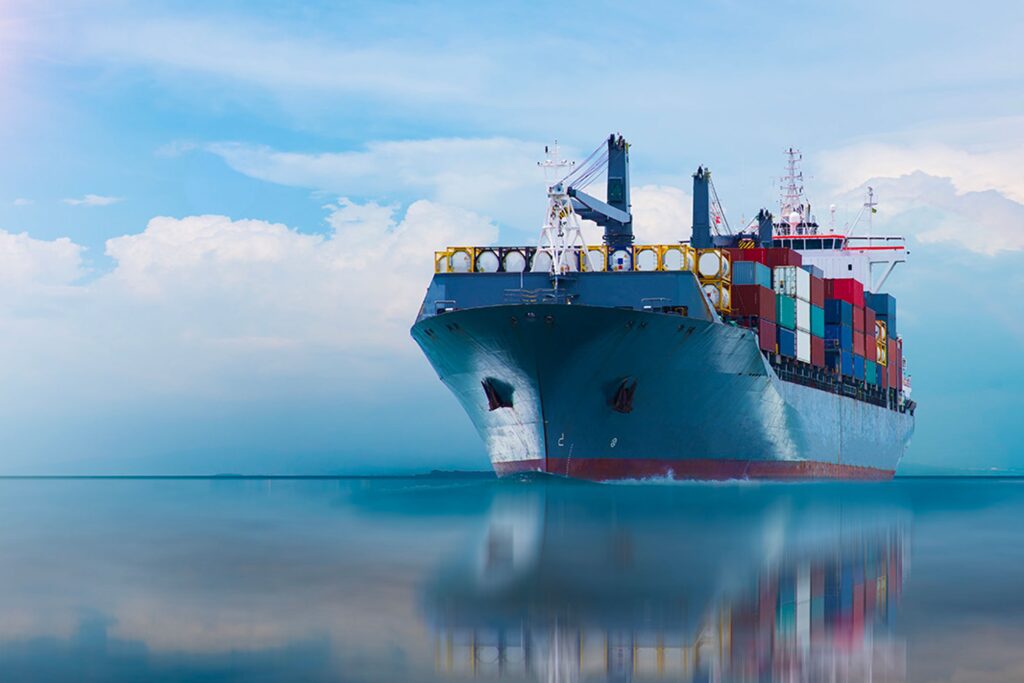
1. Shipbuilding: Structural Integrity and Strength
The shipbuilding industry is one of the most significant sectors in the marine industry, where the structural integrity of vessels is paramount. Ships are subject to harsh conditions, including high winds, waves, and the corrosive effects of saltwater. As such, the materials used in ship construction must possess exceptional strength and durability. Forged components are crucial in this context, as they provide the necessary toughness and resistance to deformation.
Forging is widely used to manufacture key structural components of ships, including frames, bulkheads, and keels. These components must be able to withstand the forces exerted by water pressure and heavy loads while maintaining the overall shape and stability of the vessel. The forging process aligns the grain structure of the metal, enhancing its strength and enabling it to endure the harsh marine environment. Additionally, forged steel offers improved fatigue resistance, which is critical for components that experience repetitive loading and unloading cycles.
Furthermore, the weight of a ship is a critical factor in its design and efficiency. Forged components are often lighter than their cast or machined counterparts, allowing for more efficient vessel designs without compromising strength. This reduction in weight can enhance fuel efficiency and overall performance, making forged products a preferred choice in modern shipbuilding.
2. Marine Propulsion Systems: Reliability and Efficiency
The propulsion systems of marine vessels are fundamental to their operation, determining speed, maneuverability, and fuel efficiency. Forged components are extensively used in these systems, including crankshafts, connecting rods, propeller shafts, and gears. The performance of these components directly affects the overall efficiency and reliability of the vessel.
Forged crankshafts and connecting rods, for example, are vital in internal combustion engines used for marine propulsion. These components must withstand high levels of stress and torque, and the forging process imparts superior strength and resistance to wear. This enhances the longevity of marine engines, reducing the likelihood of failures and downtime, which can be costly in commercial shipping and operations.
Additionally, propeller shafts, which transmit power from the engine to the propellers, are often forged to ensure they can withstand the significant forces generated during operation. The reliability of these components is critical for maintaining vessel performance and safety. Forged gears used in propulsion systems also benefit from the forging process, as they exhibit enhanced durability and wear resistance, which is essential for the smooth and efficient operation of marine machinery.
3. Offshore Structures: Safety and Performance
The offshore sector of the marine industry, which encompasses oil rigs, wind farms, and subsea installations, requires equipment that operates safely and efficiently in challenging conditions. These offshore structures face extreme weather, high pressures, and corrosive environments, making the reliability of materials and components essential. Corrosion poses significant challenges in transmission systems, especially in environments with moisture and chemical exposure. By utilizing forging for marine industry applications, we can produce components from corrosion-resistant materials, such as stainless steel or high-strength alloys, ensuring that they remain functional and reliable over time.
The forging process enhances the protective properties of these materials, providing an additional layer of resistance against environmental factors. For example, in marine applications, where transmissions are exposed to saltwater and harsh conditions, forged components offer the durability needed to withstand corrosion and maintain performance. This resistance to environmental degradation is essential for ensuring the longevity and reliability of transmission systems across various industries.
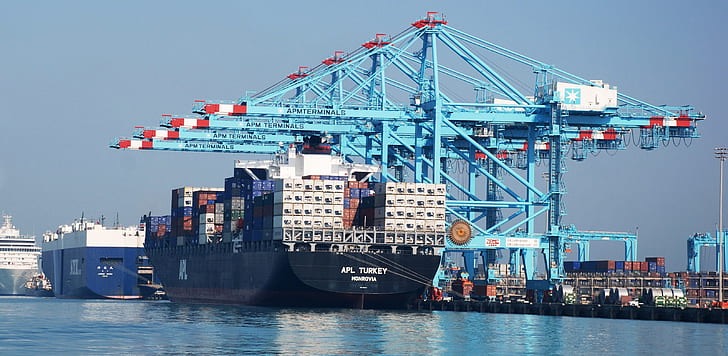
Forged components are widely used in the construction of offshore platforms and drilling rigs. Critical structural elements such as beams, connectors, and anchor points are often forged to ensure they can withstand the immense forces and stresses experienced in offshore environments. The use of forged materials in these applications enhances the safety and performance of offshore structures, reducing the risk of failure and ensuring the integrity of operations.
4. Marine Hardware and Fittings: Strength and Corrosion Resistance
The marine industry relies heavily on a variety of hardware and fittings that must perform reliably in demanding conditions. These include items such as cleats, winches, anchor chains, and various rigging components. Forged products are essential in these applications due to their superior strength, durability, and resistance to corrosion.
Marine hardware is often exposed to saltwater, which can cause rapid corrosion and degradation of materials. Forged components can be made from corrosion-resistant materials such as stainless steel or specialized alloys, ensuring they maintain their integrity and performance over time. For example, forged marine cleats and winches must withstand heavy loads while remaining free of wear and deformation, ensuring they can safely secure vessels and manage lines.
Anchor chains, which are critical for holding vessels in place, are typically forged for added strength and durability. The forging process produces a chain that can handle high loads and resist deformation under stress. This is essential for ensuring that vessels remain secure, especially in rough seas or adverse weather conditions
5. Maintenance and Repair: Reliability of Forged Components
In the marine industry, maintenance and repair are ongoing processes due to the harsh conditions vessels and equipment endure. Forging for marine industry applications is crucial, as forged components offer the durability and strength needed for replacement parts and repairs. When marine equipment is damaged or worn, the ability to replace critical components with high-quality forged parts ensures the continued reliability and safety of operations.
Forged products can be used to manufacture replacement parts for various marine applications, from engines and propulsion systems to structural components. The strength and toughness of forged materials ensure that these replacement parts will perform as expected, reducing the likelihood of further failures and prolonging the service life of marine equipment.
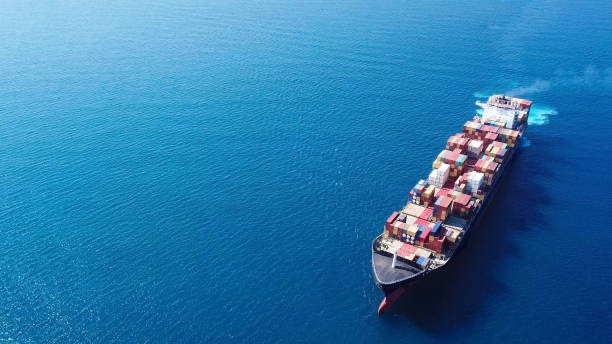
Additionally, the ability to produce custom-forged components allows marine operators to tailor replacements to meet specific needs. Whether for a specialized vessel or a unique application, the forging process can accommodate the requirements of different marine environments, ensuring that equipment remains functional and safe.
6. Innovation and Advanced Forging Techniques
The marine industry is continually evolving, with advancements in technology and materials driving the development of more efficient and effective vessels and structures. As a result, the forging industry has also adapted, employing advanced techniques such as computer numerical control (CNC) machining, 3D printing, and specialized forging processes to meet the demands of modern marine applications.
These innovations enable the production of complex shapes and designs that were previously challenging to achieve. For instance, advanced forging techniques allow for the creation of lightweight yet strong components that improve fuel efficiency and overall performance. This is particularly important in an era where environmental concerns and fuel costs are increasingly significant factors for marine operators.
Moreover, the integration of new materials, such as high-strength alloys and composites, into the forging process enhances the capabilities of forged products in the marine industry. These materials provide additional benefits, including improved corrosion resistance and strength-to-weight ratios, allowing for more efficient designs and longer-lasting components
7. Environmental Considerations in Marine Forging
As the marine industry faces growing scrutiny regarding its environmental impact, the forging process also presents opportunities for sustainable practices. Forging is an efficient manufacturing process that minimizes waste and energy consumption compared to other methods. By using recycled materials in the forging process, manufacturers can reduce their carbon footprint and contribute to a more sustainable marine industry.
The durability and longevity of forged products further support environmental sustainability. By producing components that last longer and require fewer replacements, the forging industry helps reduce material waste and the energy consumption associated with manufacturing new parts. This is particularly important in the context of marine operations, where reducing environmental impact is becoming increasingly important.
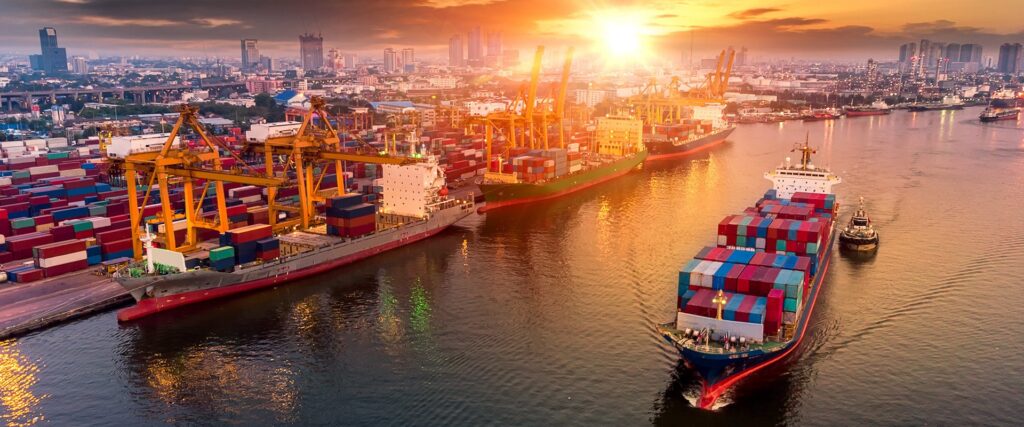
The forging industry plays a critical role in the marine sector, providing the high-strength, durable components needed for a wide range of applications, from shipbuilding and propulsion systems to offshore structures and marine hardware. Forged products are essential for ensuring the reliability, safety, and efficiency of marine equipment in demanding environments. The superior mechanical properties of forged materials, combined with the ability to produce custom solutions and accommodate advanced technologies, make forging an indispensable part of the marine industry.
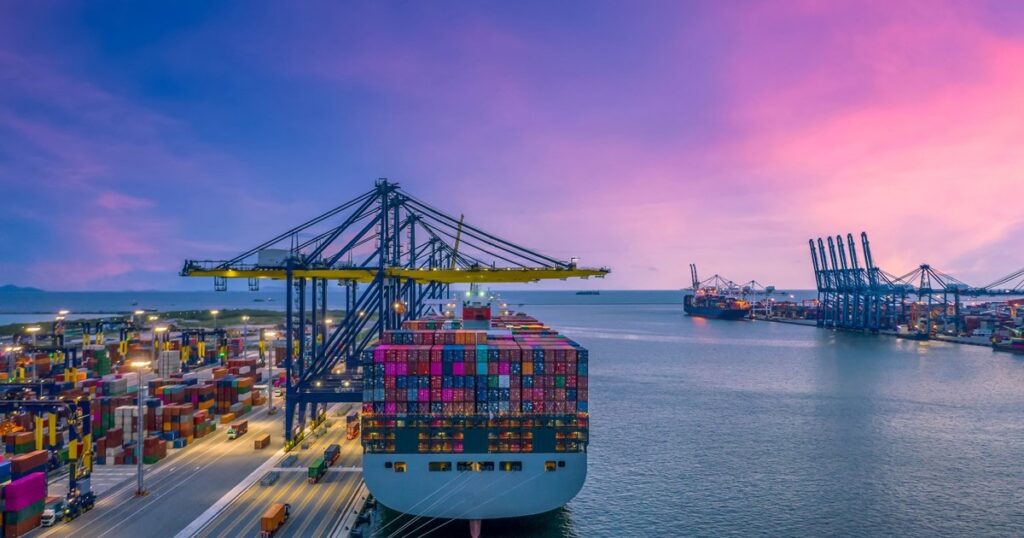
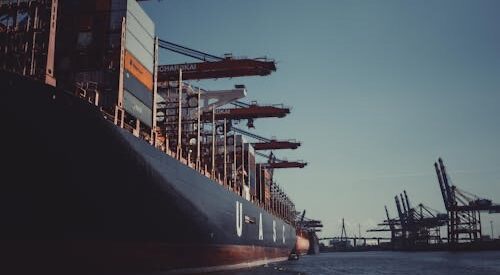
As the marine sector continues to evolve and face new challenges, the demand for high-quality forged components will remain strong. For companies like Manan Forge, which specialize in producing forged solutions for the marine industry, this presents significant opportunities to deliver products that meet the specific needs of clients while contributing to the safety and efficiency of marine operations. In a world increasingly focused on sustainability and performance, the importance of forging in the marine industry will only continue to grow.
